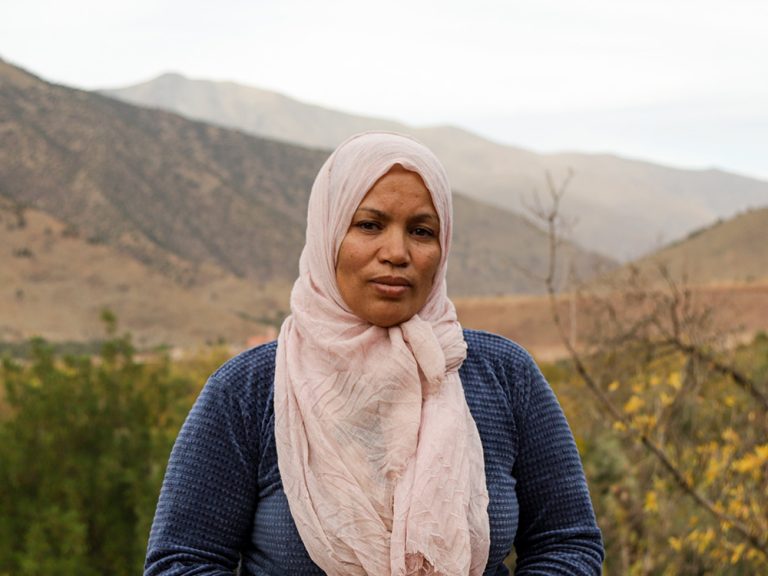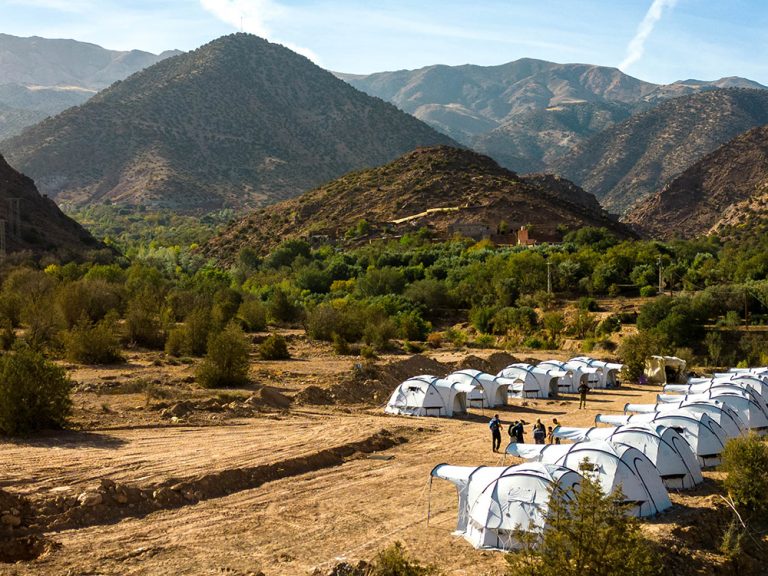On 8th September 2023 a devastating 6.8 magnitude earthquake struck Morocco. It killed nearly 3000 people and damaged around 50,000 buildings. Worst affected were communities in the Atlas Mountains. These were close to the epicentre of the quake. Entire villages were left homeless as buildings were destroyed or severely damaged.
ShelterBox responded in Morocco, supporting thousands of people without shelter after the earthquakes. We supplied tents, thermal blankets and kitchen sets. Our response was greatly helped by working with Rotary in Morocco, District 9010.
Aicha was one of the many people left homeless by the earthquake. She shared her story with us.
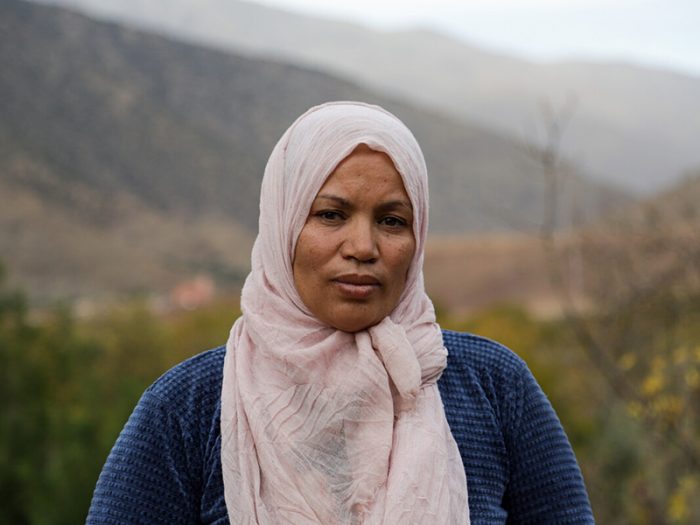

“Life before the earthquake was normal”
Before the earthquake, Aicha’s life as centred around her home, family and her community.
“Life before the earthquake was normal, I used to work before I got sick, I had two medical surgeries, the first one failed, so I had to do the second.”
Aicha enjoyed spending time with her family. “I have parents, my mother died in the earthquake, one brother and three married sisters, one of them living in this village the other two are far away from here.”
“I have spent my whole life with this community, I used to visit my sisters from another city to work, but always came back to my village.”
Everyday life was centred around the home and livestock. “Our days here are busy from the morning till night. A normal day here is waking up in the morning, cleaning the house, and making lunch. Going to feed the animals, coming back home, and making dinner.”
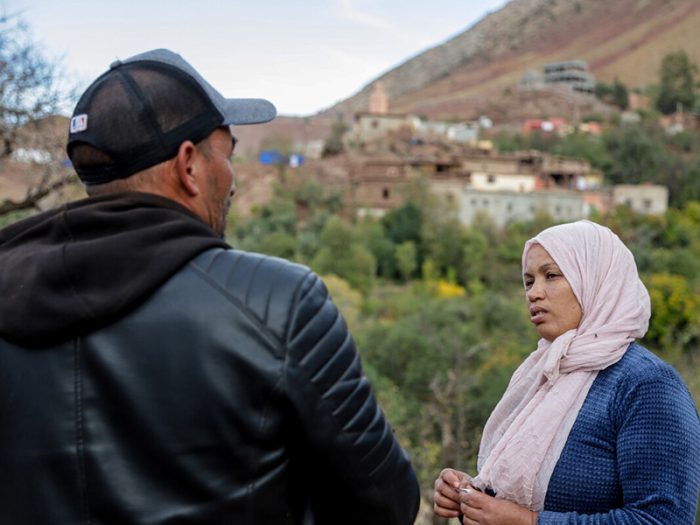

“That night was hard for us”
Aicha found it difficult to talk about the night of the earthquake. She was still trying to process what she experienced that night.
“That night was hard for us [the earthquake], I was shocked. It was difficult for me to see my mother under the ground.”
In the aftermath of the earthquake the village came together to help one another.
“The community are kind and nice people. It is a safe village. The people helped each other on that night saving people and taking out the dead. I trust my people and I feel safe with them, I grew up among them and I know them well.”
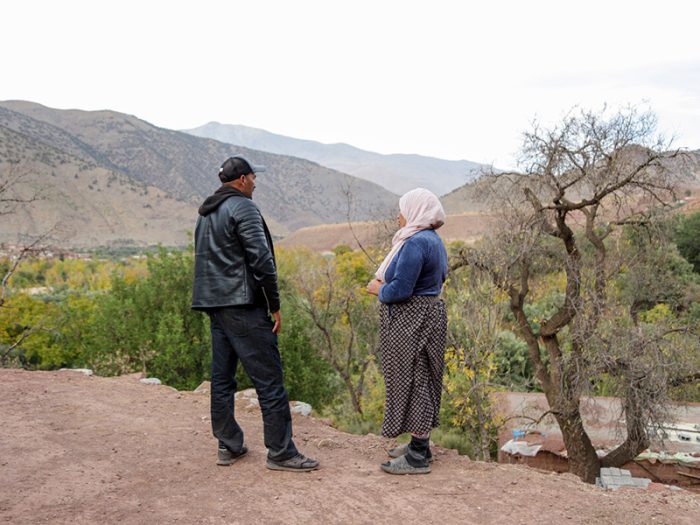

“He is like a brother to me”
Mohamed is the community leader of Aicha’s village. When talking to the residents, it becomes clear just how important he is to them.
Aicha said, “Mohamed is my Neighbour; he is a good person; we spend our childhood together and he is like a brother to me.”
“He helped the community not just on the earthquake, but he used to help before too, whatever we need we ask him for it.”
“The difference between me and Mohamed is the surname [family name], I do consider him my brother.”
Mohamed also suffered personal tragedy in the earthquake. You can read his story here.
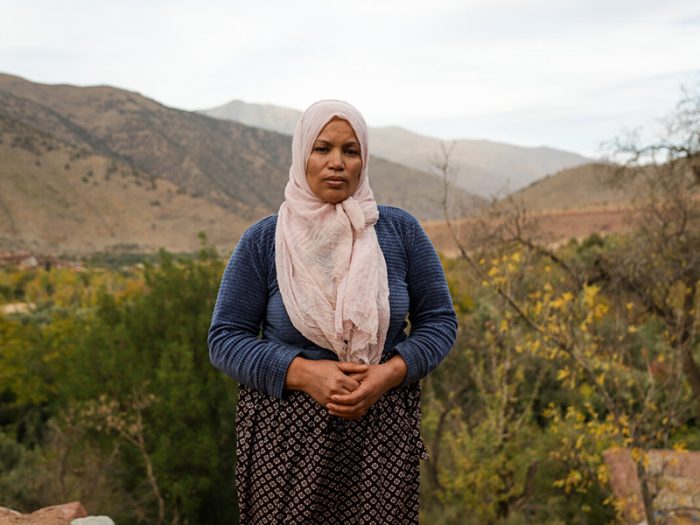

“Thank you for the tents, they are good and warm”
When ShelterBox responded to the earthquake, winter was approaching. We therefore worked quickly to try and get aid where it was needed before the colder months.
Aicha expressed her gratitude for the aid that was received.
“Thank you for coming here to talk with us and listening to our problems. Thank you for the tents, they are good and warm, and the rest of the items are so good, we like them so much. Thank you for coming from far away to see us and for helping us, thank you so much.”

